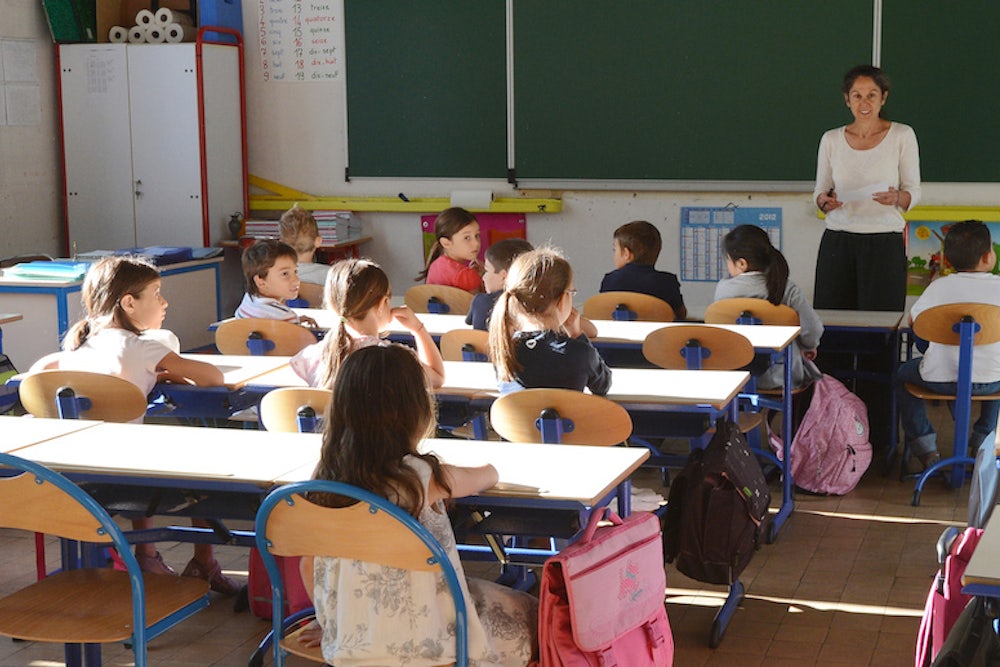It’s National School Choice Week, and among the latest controversies is whether and to what extent publicly funded alternatives to traditional public schools should be held to the same test-based accountability standards. As one author of a report that many are citing, I’m in a good position to comment.
Unusually, this particular debate has sprung up among supporters of school choice. In the present instance, the issue is whether private schools that take public funds—school vouchers—should have to report the results of state standardized tests. Experts like scholar Jay Greene, Education Week columnist and chief of the American Enterprise Institute’s education center Rick Hess, and former U.S. Assistant Secretary of Education Chester Finn have all weighed in.
This is an important question. It gets to the incentives of private providers of public services. It also reflects the more fundamental debate over the role of government and the private sector. Opponents of testing/reporting requirements argue that the “market” for school services will provide enough of a check to ensure high quality. Proponents counter that government oversight of private school performance is a reasonable condition under which such schools decide to accept public funds.
These supporters point to an evaluation of vouchers in Milwaukee, Wisconsin that I conducted with a national team of researchers led by Patrick Wolf of the University of Arkansas and John Witte of the University of Wisconsin. Our study showed large gains in test scores in the first year that voucher schools were required to participate in the state’s testing regime. Although these gains could simply reflect better preparation for the standardized test, our evidence suggests that private schools respond well to accountability policies. The importance of the issue, however, goes well beyond schools’ response.
Here’s why: One of the major arguments for requiring voucher schools to report test results is not to cast doubt on the private sector as a whole, but to flag particularly ineffective private schools (just as public accountability systems flag failing schools). A couple of weeks ago, Zack Kopplin noted in Slate that some Texas charter schools were teaching creationism in science classes. This week, Slate released an interactive map showing creationist teaching not only in charter schools but also private schools receiving public vouchers. A handful of these were located in Milwaukee.
Using data from the Wisconsin state education agency's website, I calculated that the 10 schools reported by Slate to be teaching or affiliated with creationism reported dramatically lower percentages of students proficient in science compared to other private schools participating in the voucher program. Over the 2010-11, 2011-12, and 2012-13 school years, nearly 70 percent of students in grades 4, 8, or 10 scored below “proficient” levels in science, compared to “only” 54 percent of students in other voucher schools (the difference is statistically significant). Setting aside the question of whether the other voucher schools are performing adequately on the state’s science exam, the point is that creationist schools are doing especially poorly. Lest we worry that this comparison is by definition unfair because the state’s science exam may be precisely what the creationist schools are teaching against, consider that the results are similar in math, reading, language arts, and social studies. In each subject area, the creationist schools had far fewer proficient students than the other voucher schools. Because the state requires voucher schools to report their scores, you can download these data here and see for yourself. More importantly, Milwaukee parents can access these data too.
The voucher program, like most others in the country, is directly targeted toward low-income families in urban settings—the vast majority of whom are African American or Hispanic. I happen to think there is a role for school choice to play in these settings, to the benefit of students who are desperate for high quality schools. But without public reporting, how will the parents of these students know which private schools are worth choosing and which should be avoided? If we ask them to trust that the market will work, why not let them verify? The choice may not, as I have, pit creationist schools against other voucher providers. Parents could weigh any criteria they wanted in their school selection. They might not want to make a comparison at all, but to simply see for themselves how one school is performing before they commit their child’s education to it.
Whether exam scores fully reflect school quality is a separate matter, but low performing public schools are required to answer for their results regardless. Parents without a similar answer on the private side can hardly be expected to make a fully informed decision. On its own terms, school choice is enhanced when voucher schools—or other alternatives supported on the taxpayer dime—report more rather than less information. It’s a victory for public oversight as well.
Joshua Cowen is an associate professor of education policy and teacher education at Michigan State University.
